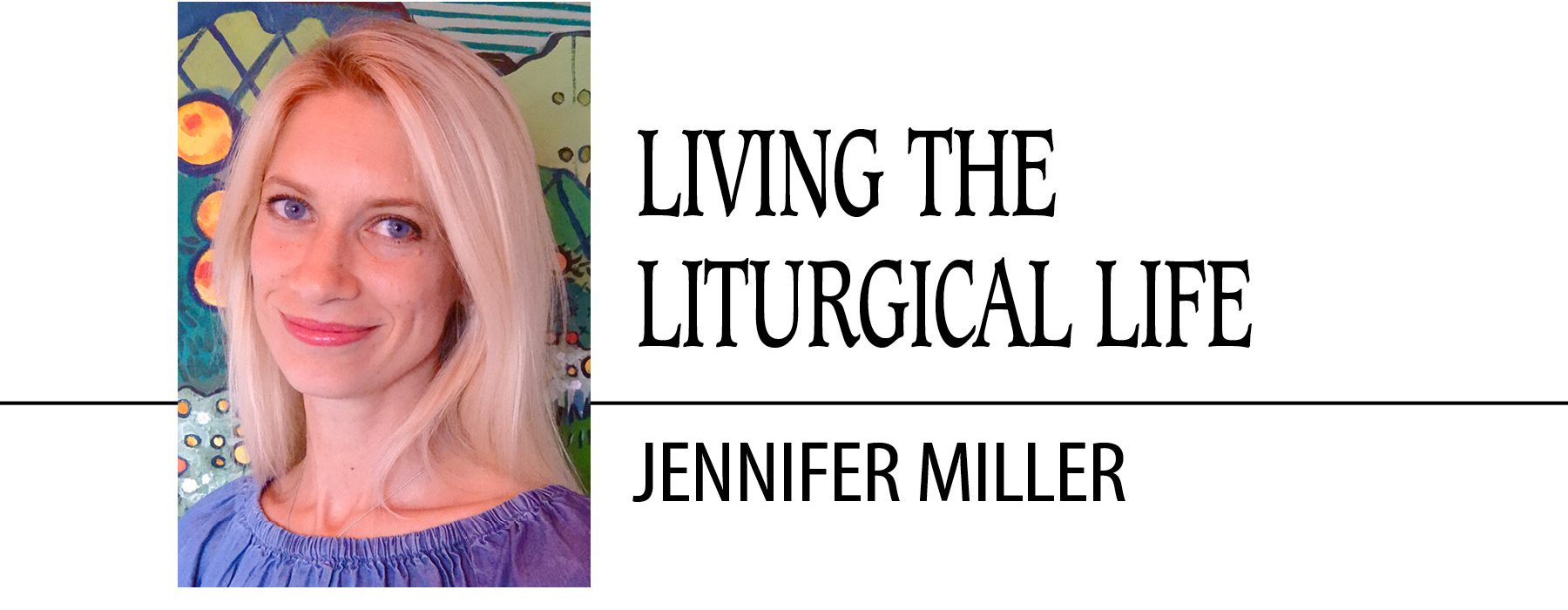February 23, 2021 // Perspective
Living Lent well, even now
“The Lentiest Lent ever” was a phrase used last year, as the COVID-19 pandemic and lockdown in the United States set in during the liturgical season of Lent 2020. A long, exhausting year later, Catholics still find themselves distanced 6 feet apart and masked at public worship. So while it might be tempting to already check off our Lenten penance as “done” thanks to daily hardships due to the ongoing pandemic, may I suggest another course of action this year?
The word “Lent” comes from the Anglo-Saxon word “lencten,” meaning spring, and “lentencid,” meaning springtime. As in the Northern Hemisphere much of Lent often falls in March and the start of spring this visual connection makes sense. A deeper spiritual reality is also present. This focus of the liturgical season as a time of new growth; buds appearing, nature reemerging from the cold hibernation of winter, winds blowing the changing air across the land and sun warming the hardened ground for new seeds to be planted. Is this not what we hope for during Lent?
Lent is a time of renewal, of springtime in the Church, as we grow evermore to be the people that God has called us to be.
From the earliest days of the emerging Church, Lent was celebrated as a time of preparation for the great Easter. We continue to live through this Paschal Mystery, over and over. We still need to prepare our weary souls for this coming Easter, the holiest time of our whole year.
The first Lenten Scripture readings speak to this reality. “Even now, says the Lord, return to me with your whole heart, with fasting and weeping and mourning; Rend your hearts, not your garments and return to the Lord, your God. For gracious and merciful is he, slow to anger, rich in kindness and relenting in punishment.” (Joel 2:12-18)
The Word of God calls to this deeper life, which God desires to have with each of us. God daily, continually, mercifully offers us an intimate, personal and unique relationship with the Blessed Trinity.
This beautiful first reading from the first day of Lent, Ash Wednesday, speaks truth though about the whole season long. Each day of Lent can be a time to refocus, repent and start anew our relationship with God. Even if the first week — or weeks — of Lent were a bust … Even now, we can turn toward our loving creator and begin again … now in this very moment, we can pause, acknowledge reality, both our failings and our desire to become Easter people, men and women with hope to bring. Even now, we can offer what is dearest to God, our very selves back to Him and begin again with and in His grace.
Living a good Lent cannot come from our sheer willpower, our fierce determination to convert. We are mortal beings, dust after all. Lenten practices aren’t New Year’s resolutions to lose weight, find a spouse or keep our office tidy. Those outward signs might occur, but it is the transformation of our souls, our very being, our lives that first operate in tandem with God’s own grace.
Disposing ourselves of this generous grace can happen at any stage of Lent. Receiving the sacraments, especially confession and Holy Eucharist, can supernaturally strengthen our souls.
Partnering fasting with prayer is essential. Prayer and fasting together increases the effaciousness of each. Numerous examples from the Old Testament and New Testament demonstrate this ancient work. With our offering and daily work then, God’s grace alone can propel us into the life of the Spirit.
Thus, our chosen Lenten disciplines of prayer, fasting and almsgiving can guide our preparations as we attune our ears and hearts in deepening relationship with God, make room for Him as we restrain our appetites, clear and plow the fields and return to the poor what is theirs.
Culturally, Lent holds a strong connotation of misery. Appropriately, perhaps, from common penances remembered, but often missing is the prayer and joy that can come with it. We do offer up, withhold, fast — but not for that end in mind. We eat less, sacrifice more and open our pockets to free ourselves, to make space, to blossom into the new growth that God first offers us. How truly freeing it is to not be a slave to our whims. What happiness we can find in living for others, planting what God asks of us?
And turning from sin toward our Savior, our Beloved, is a joy — the ability to forsake that which is not our true identity to cling to that which is indelibly imprinted upon our soul.
What greater gift can we yearn for this year? The roots and seeds are there, planted under the cold, hardened in the frost but deep in the rich dirt, by our baptism. The rotten and dead areas can be cut away to increase flowering and blooms on the wooden crosses of our lives. Let us trust in “the one who began a good work in you will continue to complete it,” as St. Paul describes in his letter to the Philippians.
Can we open ourselves to be renewed in the Holy Spirit to sprout new spiritual limbs? What choices will continue to water and fertilize our spiritual lives? Do we offer the growing garden of God’s lifetime with the Son? Let us prepare well.
Even now, we can begin. Even now, our Lord is waiting for us, desiring our love. Even now, we can prepare and learn to live Lent well.
The best news. Delivered to your inbox.
Subscribe to our mailing list today.






